Congratulations, You Just Graduated College: Now What?
Finding Your Way in the World
Sometimes it feels like the weight of the world is on your shoulders. Whether you’ve graduated from college or you’re still working on your degree, the pressure feels the same. You’ve got to balance expectations your friends, family, and society place upon you with your own aspirations....and if you’re like most of us, you’ve got the added desire to find something you love to do as well!
The good news? You’re not alone. Anyone who says they know what they’re doing for the rest of their life is either lying to you or to themselves. In the course of your early professional development, shifting career gears is more than common, and for most, it happens numerous times. There are two key things to remember, though: that you control the career pathway you take, and that you prepare yourself by selecting the appropriate learning path to support your career decision.
Selecting Your Career Pathway
Many of us have trouble with that first step. There are so many fears that run through our heads: “Does this pay enough?” — “What if it’s boring?” — “What will my parents say?” — and sometimes even: “What if I DO like this and everything works out?” Although it seems counter-intuitive, sometimes even the idea of our own success holds us back.
Why Finding the Learning Experiences that Support Your Career Choices Is Key
The challenge with the second step is that sometimes you don’t know what you don’t know. While college is an excellent opportunity to refine the lifelong learning skills you’ll use throughout your life, it does not provide you with the practical professional development you need for the modern workplace—and may even neglect to develop the employability skills that make you a highly desirable candidate.
One additional challenge that you might face is the impact that one large factor outside your control—the inclination of your new employer to teach you critical job skills—has on your ability to be successful in your new role.
From the early job hunting phases to your first weeks on the job, let’s face it: figuring it out is tough! What role is the right one for you; are you qualified for that role; if not, what kind of skills are needed to succeed in a given career. Cobbling together the right pieces to unlock the doors to your dream job isn’t easy.
The Digital Solution
How, exactly, do we help you? One, explore careers with pathways that show you what different careers actually entail. Two, learn how to be successful in these different careers by interacting with targeted training guided, if you prefer, by a custom AI agent. Three, take advantage of the community of peers and experts who support you along the way. This three-pronged approach will also build your confidence, so you will be ready when you’re applying for your dream job.
Sign up for our Beta, and start making your own path today.






